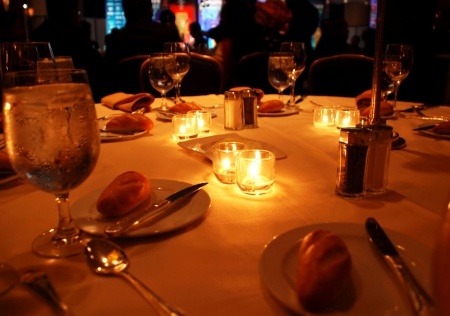Etiquette-ful Reciprocity

Many years ago (before cell phone technology), my husband and I were traveling in Japan and somehow missed a late-night train in Tokyo. We didn’t know what to do and couldn’t find anyone nearby who spoke English.
A man approached us, introduced himself, and gave us his business card as he could tell we needed some help. He’d spent time in the U.S. going to school and spoke English. He walked us to a hotel and helped check us in. He also wrote out in English what we needed to do the next day to catch the train heading to our destination. The gratitude we felt needs no description! Upon arriving home, we contacted him in Japan expressing how much his kindness meant to us.
It’s natural that we feel pleasure when someone is considerate towards us. The people who you most want to do something kind for are those who have done something for you. You feel gratitude when someone extends an intentional good act toward you, leading you to extend a good act to that person in return. This is reciprocity in action.
Kindness Begets Kindness
Reciprocity is a social exchange driven by the gratitude we feel for intentional kindness of others. And it's as old as humankind.
This reciprocity is also seen in etiquette guidelines:
- When someone says, “Thank you!” it brings, “You’re welcome.”
- A person extends her hand to you in greeting, and you extend yours.
- If a man is wearing a hat, and another person smiles or says, “Hello,” he might touch the brim (the equivalent of a “HT” (hat tip) acknowledgement on social media).
- A door is opened for you, and you might say, “You are kind. Thank you.”
- The elevator door opens and the woman on the right, closest to the door, extends her arm across the door to allow others to exist first. “Thank-you’s” are forthcoming.
- You are invited to dinner and afterward write a thank-you note, knowing it's your turn to host the next dinner.
- A neighbor brings a gift of lemons from her trees and the receiving neighbor makes lemon loaves and shares a loaf with his neighbor.
Each kindness listed above was returned in some way. Whether as simple as saying, "Thank you," or doing something in acknowledgement out of gratitude.
Etiquette-ful Reciprocity
Being etiquette-fully reciprocal implies that you are aware, alert, and mindful to extending actions of kindness due to a kindness that has been extended to you. Not only is it human instinct, it helps keep your relationship in balance.
However, you have no control over the acceptance of your reciprocal act of kindness. For example, your neighbors hosted you at their home and gave a lovely dinner. A month later, you ask those same neighbors to your home for dinner, but they cannot come. So, you ask them to breakfast at a restaurant. They decline.
Your act of reciprocation has been completed. Simply by asking, you have returned the kindness, even if they don't accept.
But etiquette asks that you allow another person to reciprocate. This, too, helps keep your relationship balanced. While reciprocity doesn't require in-kind giving, it does require the balance of give and take. Putting things off-balance will also put your relationship off-balance.
When Someone Doesn't Reciprocate
Kindnesses are intentional acts of good will. And, if recognized, they can’t help but generate feelings of gratitude. In turn this gives rise to reciprocity. But sometimes kindness isn't recognized as such. This is easier to accept when extending kindness to a stranger. After all you may never see the person again.
But when extending a kindness to a friend or family member who doesn't acknowledge your act or tangible gift, it can make you take pause. The give and take, the to and fro, has been thrown out of balance.
My advice is to still try and let it go. Then examine your relationship and why there may have been no reciprocation:
- Was your offer or act of kindness over-the-top? Perhaps the receiver simply doesn't know how to repay you.
- Are you doing too much in an effort to hold onto a relationship that has fizzled? Perhaps you aren't as close as you used to be and your acts of kindness are your way of holding on to a relationship the other person is willing to let go of.
- Are your expectations too high? Maybe the person did reciprocate in her own way and you didn't recognize it.
Sometimes it's best to look within rather than outside of ourselves to recognize if we're truly practicing kindness, or just seeking recognition.














